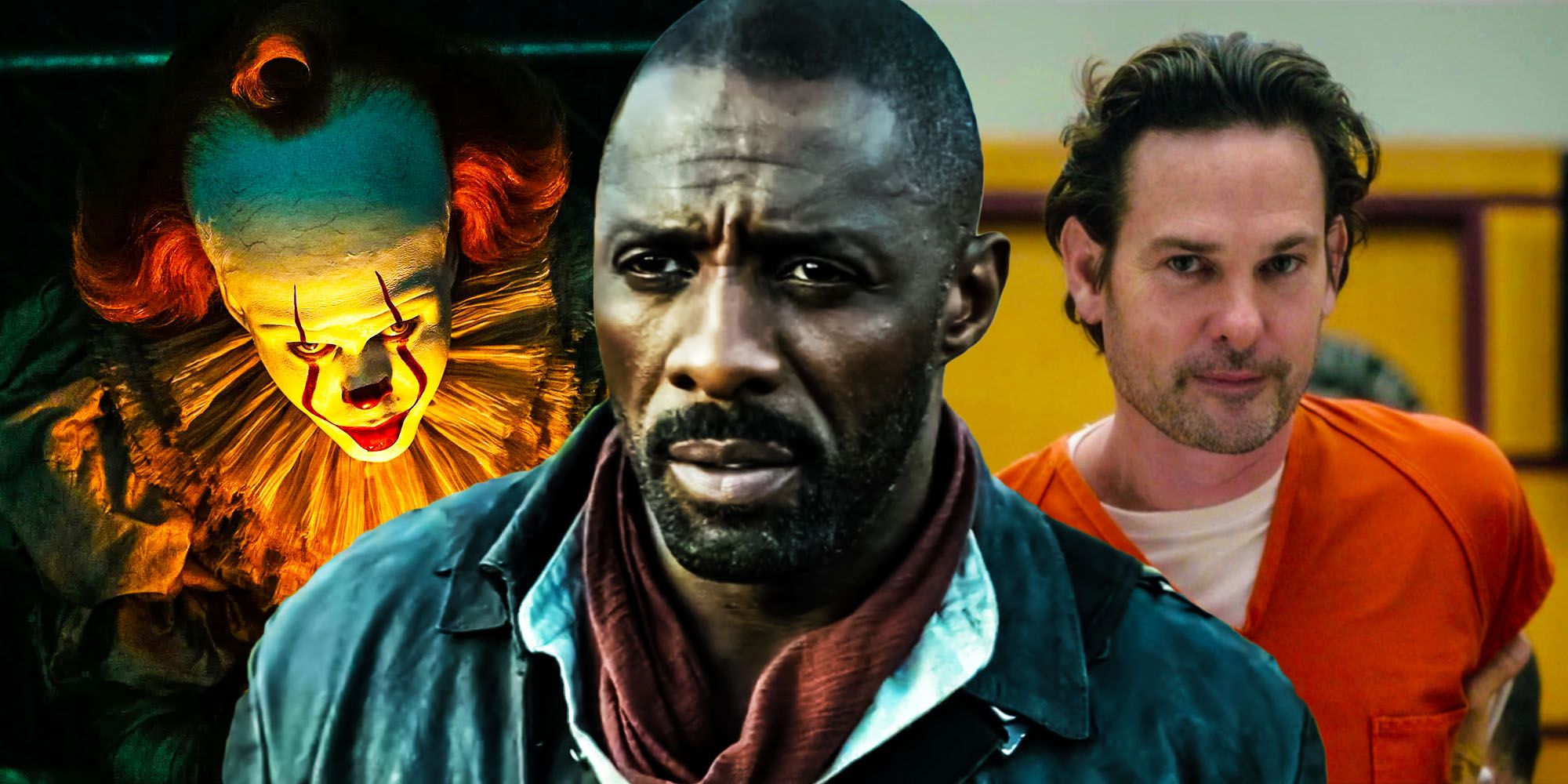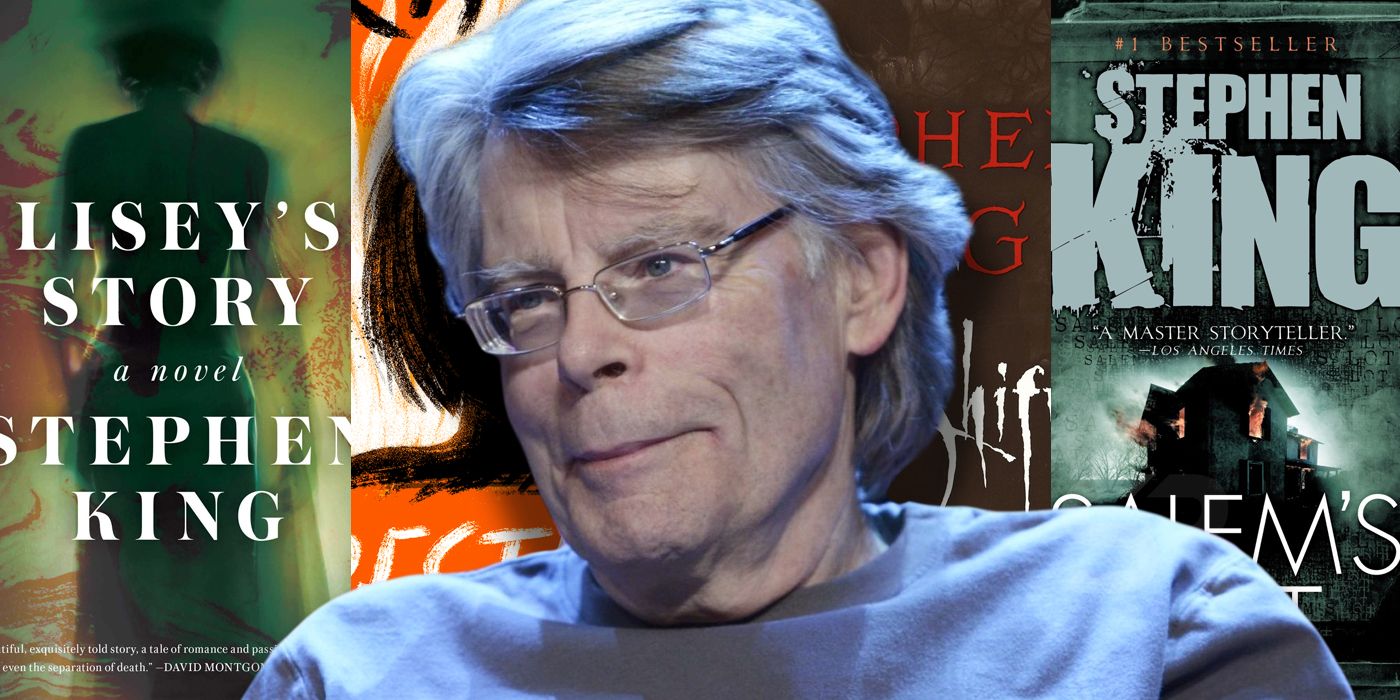Warning: spoilers for some of Stephen King’s novels.
Stephen King is best known as the “King of Horror” and one of the best authors in general, and while his works are immensely popular and his narrative style has been praised by critics and readers, there’s one problem with some of his novels: the ending, as his stories sometimes fall right at the end and fail to deliver a satisfying conclusion. Stephen King’s career as a writer began in 1967 when he sold his first professional short story (“The Glass Floor”) to Startling Mystery Stories, and between 1966 and 1970, he wrote drafts for two novels, of which only one was later released (The Long Walk, in 1979).
King’s first published novel was Carrie, which saw the light in 1973, though it was actually King’s fourth novel. Carrie sold modestly, and its sales were boosted by Brian De Palma’s 1976 adaptation, after which it became a bestseller. Still, Carrie was enough to set King’s career in motion, and his next published novel was ‘Salem’s Lot, in 1975. However, it was King’s third published novel, The Shining (1977), which established him as a preeminent author in the horror genre – and he has been unstoppable ever since. King has explored a variety of scenarios and fears in his novels, and has provided the audience with some of the most memorable villains and monsters in the horror genre thanks to novels like Cujo, Pet Sematary, IT, Misery, The Stand, and more.
King’s works have also been adapted to other media for years, and some of them have encountered one big problem: the ending of the novels, as King is also known for struggling to wrap up his stories from time to time, no matter how engaging and well-written the rest of the story is. But what is the problem with the endings of Stephen King’s novels and do all his books have that problem?
Are Stephen King’s Endings Really That Bad?
Horror stories in any shape and form are a safe way for the audience to explore different fears and even discover some they didn’t know they have in a safe environment, and Stephen King has been doing that for years. King’s writing style is incomparable, as he’s able to evoke intense emotions with just a few words, quickly engaging readers in the first pages and encouraging them to keep reading, building suspense that, in some cases, comes crashing down in the final pages. There are a couple of disappointing endings in Stephen King’s novels, and while they might not be bad by themselves, as the conclusion of bigger and exciting stories they end up falling short.
The Problem With So Many Of Stephen King’s Endings
As mentioned above, the problem with Stephen King’s endings is that most of the time they don’t live up to the rest of the story, and thus fail to wrap it up in a satisfying way. Some readers have even labeled these as examples of “lazy writing” and King growing tired of writing towards the end of his stories, while others feel the “problem” is rooted in the length of the stories, though not linked to laziness. To some, King’s strongest endings come in his short stories and shorter novels, but in longer stories, like IT, they find that King loses his focus sometime after the half.
What makes some of Stephen King’s endings so unpopular and, to some readers, even enraging is mostly how the antagonist is either defeated by borderline comical means or methods that don’t make much sense, thus not living up to the suspense, mystery, dread, and fear that precede them. Some examples of these are Under The Dome, where the cynical editor of the local newspaper begs the “leatherheads” (none other than alien creatures) to release the town, and so they do by removing the dome; The Tommyknockers, where once again, aliens are behind everything (and it’s worth noting that Stephen King called The Tommyknockers “an awful book”); IT turned out to be a giant spider (that in the physical world, at least) defeated by Bill locating its heart and destroying it, and with that Derry basically dies too as it’s destroyed by a storm, and he awakens his wife from her catatonia with a ride on his childhood bike; the ending of The Stand literally sees the Hand of God; and The Dark Tower series, which also sees the Hand of God in a complex ending that some love and others truly hate.
It’s important to note that Stephen King has said he doesn’t plot or prepare his novels, and he just starts with a situation and then pretty much lets it flow, meaning that he doesn’t write a story knowing where it’s going to end. With this in mind, many believe that King ends up cornering himself while writing, leading to all those unsatisfying and anticlimactic endings that not even the movies and TV adaptations have been able to fix (most of the time). Alternate endings to some of King’s novels have been revealed over the years, and he has even written three endings for The Stand, including the one in the most recent TV adaptation, but there are many others that just can’t be fixed – and, of course, King himself has already addressed this, with his peculiar sense of humor.
Which Stephen King Books Avoid His Bad Ending Problem
Although many of Stephen King’s books have a "bad ending" problem, there are more novels with satisfying endings than novels with bad ones – they just get less attention than the disappointing ones. Like in everything, there are always people who like what many others don’t, so there are fans who defend the highly-debated endings of The Stand and The Dark Tower, for example, but there are other novels that most King fans agree are actually pretty good.
Some examples of books that avoid the “Stephen King bad ending problem” are Carrie, where the title character has her revenge by destroying the school (as she was incessantly bullied) and her home, where she underwent the abuse of her obsessively catholic mother, who she kills by stopping her heart with her mental powers; Revival, where the purpose of the experiments was to learn about the afterlife, which turns out to be a hellish dimension of chaos with Lovecraftian beings; Misery, where Paul manages to escape from Annie and she dies in an attempt to go after him and kill him; and The Green Mile, where John Coffey cures Hal Moores’ wife of a brain tumor and Paul learns Coffey is actually innocent and tried to heal the girls that another inmate killed, but it’s too late for him and he’s put to death.
Stephen King’s status as one of the best writers there are (and not just a horror writer) and track record of engaging and suspenseful stories inevitably contribute to the audience expecting a conclusion that lives up to the preceding story, but even the greatest authors have had their weaknesses. It’s undeniable that some of the endings of Stephen King’s novels fall short, but it’s also undeniable that he has more novels with strong and satisfying endings than bad ones – it’s just that readers have engaged in endless debates over the bad ones that the great ones have been left aside. However, and as it happens not just with books but with movies and TV shows as well, it’s all subjective, so everyone will have a different reaction to the endings of Stephen King’s books depending on their own experiences, likes, dislikes, and more.




